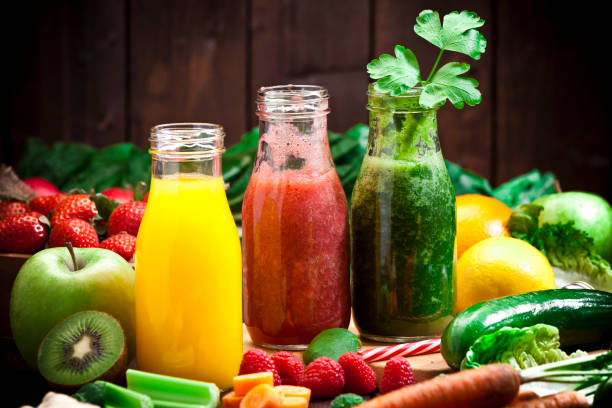Embarking on a journey through the discomfort of food poisoning can feel like navigating a stormy sea without a compass. It’s a condition that affects millions annually, with symptoms ranging from mild discomfort to severe dehydration and illness. Amidst this turmoil, finding the right nourishment is akin to discovering a beacon of light guiding you back to health. Our comprehensive guide, “What To Eat When You Have Food Poisoning,” is meticulously crafted by experts in nutrition and gastrointestinal health, offering you a lifeline during these challenging times.
This article doesn’t merely list foods; it delves into the science of why certain foods can help stabilize your condition, aiding in a quicker, more comfortable recovery. We understand how overwhelming it can be to make food choices when your body is in distress. Thus, we’ve carefully curated a selection of foods that are gentle on the stomach, aiming to alleviate symptoms and prevent further irritation.
By exploring our guide, you’ll unlock the secrets to managing food poisoning effectively, learning not only what to eat but why these choices can significantly impact your recovery process. Whether you’re suffering from nausea, vomiting, diarrhea, or a combination of symptoms, this article promises to equip you with the knowledge to navigate this unpleasant experience with confidence.
Join us as we dive into the essentials of post-food poisoning care, where each recommendation is backed by science and designed to cater to your body’s specific needs during recovery. Let your curiosity lead the way as you discover how to turn a daunting ordeal into a manageable journey back to health. Continue reading to unveil the optimal dietary strategies that promise to support your body, enhance your recovery, and restore your well-being after food poisoning.
Overview Of Food Poisoning
Food poisoning, classified as a type of foodborne illness, is acquired by consuming contaminated food or drink. The causes can be attributed to harmful substances or pathogens present in the consumed food or beverage. Common symptoms of food poisoning include upset stomach, diarrhea, and vomiting.
Rehydration is Key
Rehydrating after food poisoning is vital to replace lost fluids and electrolytes. Start by taking small sips of water or sucking on ice chips. Then gradually increase to electrolyte drinks like sports drinks, clear broths, diluted fruit juices, or oral rehydration solutions. Signs of dehydration include dark urine, fatigue, dizziness, and dry mouth. Proper hydration can counteract these effects. Keep sipping fluids throughout the day.
Bland & Easy Does It
When your stomach is upset, bland and easily digested foods are gentlest. Try the BRAT diet – Bananas, Rice, Applesauce, and Toast. Here are some simple meal ideas:
- Breakfast: Rice porridge, toast with applesauce, bananas
- Lunch: Baked chicken or fish with plain rice, crackers with mashed avocado
- Dinner: Clear vegetable broth soup, mashed potatoes, baked sweet potato
Low-fiber, low-fat choices are best. Pay attention to any personal dietary needs or restrictions too.
Natural Support for Your Gut
It’s usually best to let your body cleanse itself naturally after food poisoning. Over-the-counter anti-diarrheal medications tend to prolong the illness. Ginger is a time-honored remedy that can soothe an upset stomach when taken as tea, chews, or capsules. Probiotics may also help restore healthy gut bacteria. However, consult your doctor before taking any new supplements. Other natural aids include peppermint, chamomile, or fennel teas.
What to Avoid During Recovery?

Obviously, avoid any food or drink that caused your food poisoning. Also steer clear of:
- Alcohol – irritates the stomach lining
- Caffeine – can worsen dehydration
- Spicy foods – irritate the digestive tract
- High fiber – can worsen diarrhea
- Dairy – may exacerbate diarrhea
- Fatty foods – difficult to digest
- Fruit juice – high sugar content
- Tobacco – slows healing
Look for lower-fat dairy options like yogurt or lactose-free milk. Decaf coffee and herbal teas can stand in for caffeinated beverages.
Conclusion
With proper nutrition and hydration, mild cases of food poisoning usually pass within 24-48 hours. Stick to a bland, BRAT-style diet for a faster recovery. Seek medical attention for bloody stools, high fever, or signs of severe dehydration like dizziness or rapid heart rate. Otherwise, get rest and drink fluids as your body heals itself. You’ll be back on your feet in no time.
